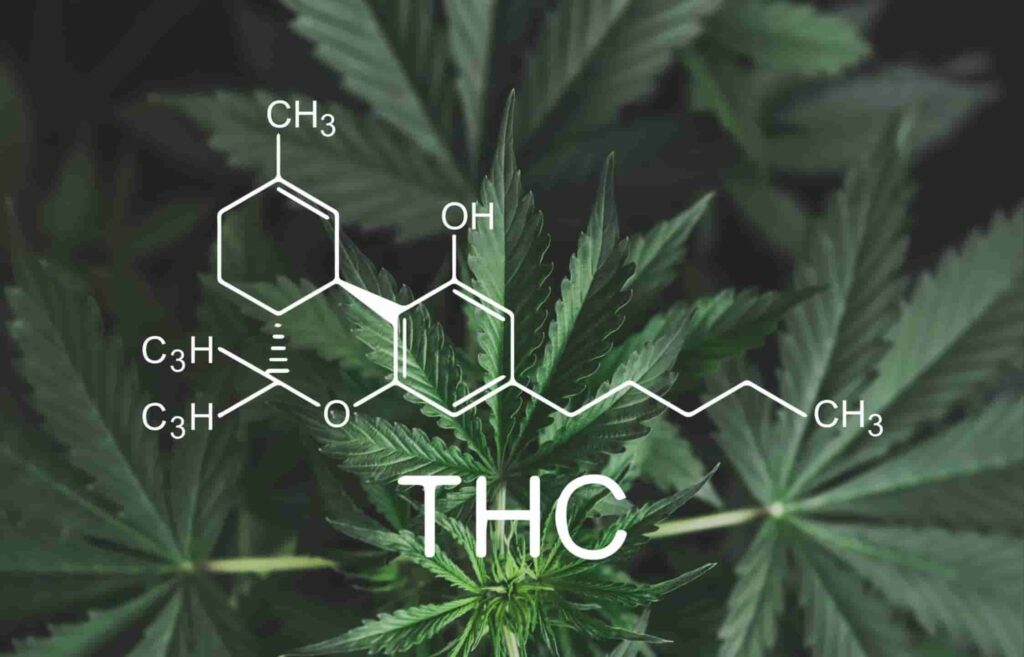Tetrahydrocannabinol (THC): Navigating the Depths of Cannabis’ Principal Psychoactive Compound and its Health Benefits
Tetrahydrocannabinol (THC) is a compound within the cannabis plant that has captivated the interest of researchers, medical professionals, and the general public due to its psychoactive effects and potential health benefits. As one of over 100 cannabinoids found in cannabis, THC plays a central role in shaping the plant’s diverse therapeutic properties. This comprehensive exploration aims to delve into the chemical structure, historical context, physiological effects, and, most importantly, the health benefits associated with THC.
The Chemistry of THC
At a molecular level, THC boasts a distinctive structure with 21 carbon atoms and a pentyl (5-carbon) side chain, denoted by the molecular formula C21H30O2. This unique structure allows THC to interact with the endocannabinoid system (ECS) in the human body, specifically binding to CB1 receptors in the brain and central nervous system. It is this interaction that gives rise to THC’s psychoactive effects.
Historical Significance and Cultural Use
The roots of THC’s story are deeply embedded in the historical and cultural tapestry of cannabis use. Across millennia, various cultures, including the Chinese and Indians, have harnessed cannabis for medicinal, spiritual, and recreational purposes. THC, as a primary psychoactive compound, gained recognition in the 1960s when Israeli scientist Raphael Mechoulam identified and isolated it, marking a pivotal moment in understanding the plant’s pharmacological properties.
Physiological Effects of THC
The physiological effects of THC stem from its interaction with the endocannabinoid system, a complex network of receptors and neurotransmitters crucial for maintaining homeostasis in the body. By binding to CB1 receptors, predominantly located in the brain and central nervous system, THC induces a range of effects. These effects include altered perception, mood elevation, increased appetite, and impaired coordination, offering both recreational and therapeutic potential.
Short-Term and Long-Term Effects
Short-term effects of THC use are diverse, influenced by factors such as dosage, consumption method, and individual sensitivity. Users often report euphoria, relaxation, altered time perception, and heightened sensory experiences. However, excessive consumption may lead to adverse effects such as anxiety, paranoia, and impaired cognitive function.
Long-term use of THC has been a subject of scientific inquiry, with varying findings. While some studies suggest potential impacts on memory, learning, and mental health, the relationship between THC and these outcomes is complex and often influenced by individual factors. Ongoing research aims to elucidate the nuanced effects of long-term THC use and its implications for mental well-being.
The Therapeutic Potential of THC
Beyond its recreational use, THC has garnered attention for its therapeutic potential in managing various health conditions. The U.S. Food and Drug Administration (FDA) has approved synthetic THC derivatives, namely dronabinol and nabilone, for addressing chemotherapy-induced nausea and vomiting and stimulating appetite in patients with AIDS-related wasting syndrome.
Chronic Pain Management: One of the most researched therapeutic applications of THC is in the management of chronic pain. Cannabis, and by extension THC, has demonstrated analgesic properties that make it a potential alternative or adjunct to traditional pain medications.
Neurological Disorders: THC has shown promise in alleviating symptoms associated with neurological disorders such as multiple sclerosis (MS) and epilepsy. Research suggests that THC may help reduce muscle spasms and seizures, offering relief to individuals with these conditions.
Mood Disorders: The mood-enhancing properties of THC have been explored in the context of mental health. Some studies indicate its potential in mitigating symptoms of depression and anxiety, although the relationship between THC and mental health is intricate and requires further investigation.
Appetite Stimulation: THC’s ability to stimulate appetite (commonly referred to as the “munchies”) has been leveraged in medical settings to counteract weight loss in patients undergoing treatments like chemotherapy or suffering from conditions that lead to reduced appetite.
Cancer Treatment Support: Preliminary research suggests that THC may play a role in supporting cancer treatment by alleviating side effects such as nausea and improving the overall well-being of patients undergoing chemotherapy.
The Entourage Effect
THC does not act in isolation within the cannabis plant; it is part of a dynamic ensemble of cannabinoids, terpenes, and other compounds. This synergistic interaction, known as the entourage effect, underscores the notion that the combined action of these components yields a more profound therapeutic impact than any single cannabinoid in isolation. Understanding the entourage effect is crucial for optimizing the therapeutic potential of cannabis-based medicines.
Challenges and Controversies
Despite the promising therapeutic applications of THC, challenges and controversies surround its use. Adverse effects, such as cognitive impairment and potential risks to mental health, are areas of concern. Additionally, the variability in individual responses to THC underscores the need for personalized approaches to dosage and administration.
Conclusion
Tetrahydrocannabinol, as the principal psychoactive compound in cannabis, stands as a multifaceted player in the realm of health and wellness. Its historical significance, complex chemistry, and diverse physiological effects contribute to an ongoing dialogue about its potential benefits and risks. As scientific understanding advances, the therapeutic potential of THC, whether in pain management, neurological disorders, or mental health, holds promise for improving the quality of life for many. The journey into the depths of THC continues, unlocking new possibilities for harnessing its benefits for the well-being of individuals around the world.

Dr. Nicholas Marsh has been a respected board-certified anesthesiologist in Northern Virginia for over 35 years. Recognized as a top doctor by FindaTopDoc.com, his vision for providing top-quality medical services is driven by his passion for patient comfort and dignity.

